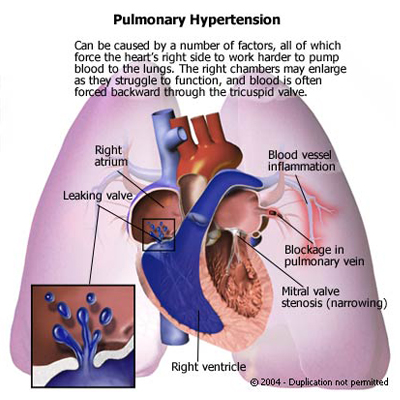Pulmonary Hypertension (PH)
Pulmonary hypertension is a condition in which blood pressure in the pulmonary artery, pulmonary vein, or pulmonary
capillaries) is abnormally high. Pulmonary hypertension can be a severe disease with a markedly decreased exercise tolerance and heart failure. It is
because the right side of the heart must work harder to push the blood through the pulmonary arteries into the lungs. Over time, the right ventricle
becomes thickened and enlarged. |

NATIONAL CHEST REGISTRY